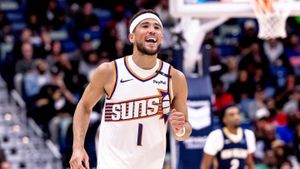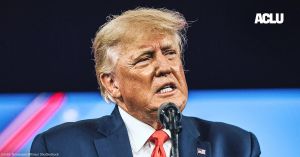Robert F. Kennedy Jr.’s recent confirmation hearings before the Senate have showcased the разделение в opinions over his suitability to lead the U.S. Department of Health and Human Services (HHS). Over the course of six hours of testimony spread across two days, Kennedy faced intense scrutiny from lawmakers about his long history as a vaccine skeptic and his past statements on public health issues.
Despite the prolonged questioning, uncertainty looms over whether Kennedy will secure confirmation. Observers noted several key takeaways from his testimony.
Firstly, Kennedy did not distance himself from many controversial views he has espoused over the years. Prefacing his remarks, he asserted, “news reports have claimed I am anti-vax or anti-industry. I am neither.” Nevertheless, his refusal to unequivocally state vaccines do not cause autism raised eyebrows among senators, many of whom have pointed to extensive scientific consensus rejecting this claim.
This hesitation to fully embrace established science was particularly unsettling for senators grappling with Kennedy’s extensive history as an activist frequently challenging the safety of vaccines. For example, during the hearing, he did not deny his prior associations with arguments linking vaccines to autism, opting instead to say he would come to his conclusions based on data, even though extensive data has already been presented disproving this myth.
On other divisive topics, Kennedy maintained his stance on abortion without presenting any form of evolution in his viewpoint. He stated plainly his commitment to implementing President Trump’s policies and referred to “every abortion as a tragedy,” which some senators, especially Democrats, found troubling, signaling their concerns about his approach to reproductive rights.
Sens. from both parties attempted to navigate the turbulent waters of Kennedy’s nomination, highlighting his occasional vocal support from Republican senators. Sen. Maggie Hassan, a Democrat from New Hampshire, drew attention to the ironies present within the chamber, remarking, “It’s great my Republican colleagues are so open to voting for a pro-choice HHS secretary.” This sentiment highlights the complex and often contradictory political dynamics surrounding Kennedy’s nomination.
Adding to the concerns was Kennedy’s apparent unfamiliarity with federal health program modalities, which only became more pronounced as the questioning unfolded. Louisiana Republican Sen. Bill Cassidy, himself a physician, asked Kennedy to clarify aspects surrounding Medicaid, leading to responses riddled with factual inaccuracies. Kathleen then sought to extract explanations of the four major parts of Medicare, prompting Kennedy to stumble through answers, demonstrating the significant knowledge gaps potentially jeopardizing his leadership.
Despite these setbacks, Kennedy did address pharmaceutical pricing and expressed intentions to explore the high costs of medications within the U.S. He mentioned discussions he has had with Trump about negotiating lower drug prices, stating, “we should end [the pricing] disparity.” He distanced himself from the pharmaceutical industry's influences, criticizing Washington’s relationship with drug manufacturers, saying, “almost all the members of this panel… are accepting millions of dollars from the pharmaceutical industry and protecting their interests.”
Following the hearings, the stakes have never been higher for numerous senators positioning themselves between Kennedy's ardent supporters and detractors. Many senators remain torn; they observe Kennedy’s long history of opposing public health norms yet recognize he could attract some unexpected bipartisan support.
Especially concerning were Kennedy’s evasive answers surrounding his role during the 2019 Samoa measles epidemic, which resulted in numerous fatalities. When pressed about the issue, he implied some deaths were unrelated to measles, failing to acknowledge the virus's embedded dangers, which have consistently claimed innocent lives.
Sen. Cassidy, visibly frustrated, emphasized the importance of unequivocally asserting vaccines do not cause autism, to which Kennedy sidestepped clear acknowledgment, insisting he prefers to review the available evidence before arriving at definitive conclusions. Since this has been conclusively debunked by numerous studies, many senators are questioning how someone who has cast doubt on vaccine efficacy for decades can transform his stance upon entering the cabinet position.
The White House, hoping for solid ground, stated through confirmation spokesperson Katie Miller, “we are fully confident [Kennedy] will be confirmed by the U.S. Senate.” Yet outcomes remain uncertain as lawmakers grapple with the gravity of placing someone with such polarizing views at the helm of HHS.
There's little doubt—Kennedy’s nomination epitomizes the challenges of balancing expertise, politics, and public health imperatives. Whatever leads the Senate takes, one thing is clear: America's trust and safety hang precariously on the upcoming decision concerning Kennedy's nomination.
The ramifications of confirming or rejecting Robert F. Kennedy Jr. as HHS secretary will echo across American public health discourse, influencing strategies implemented during public health crises effectively and perpetuating or dismantling long-standing public health initiatives.



